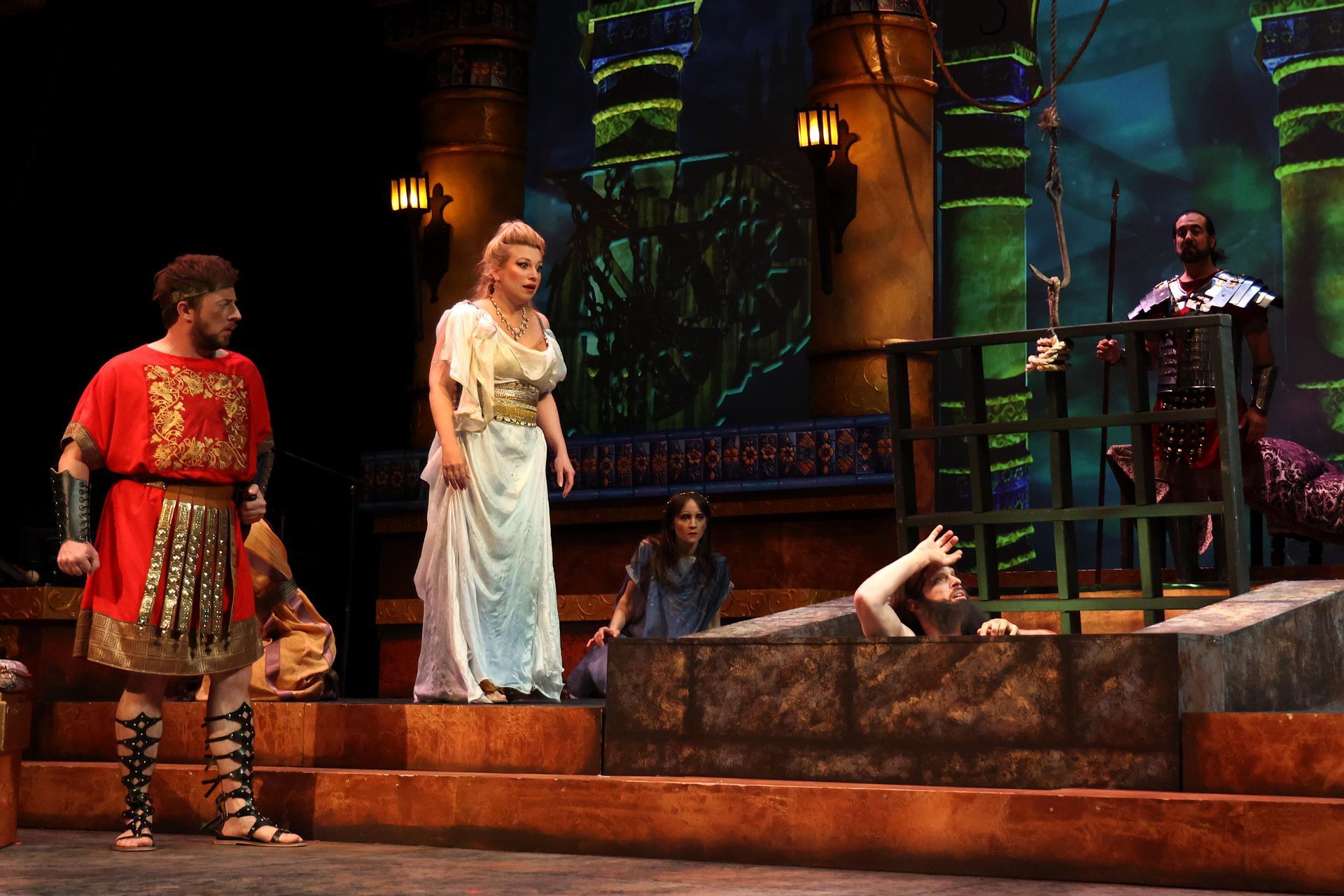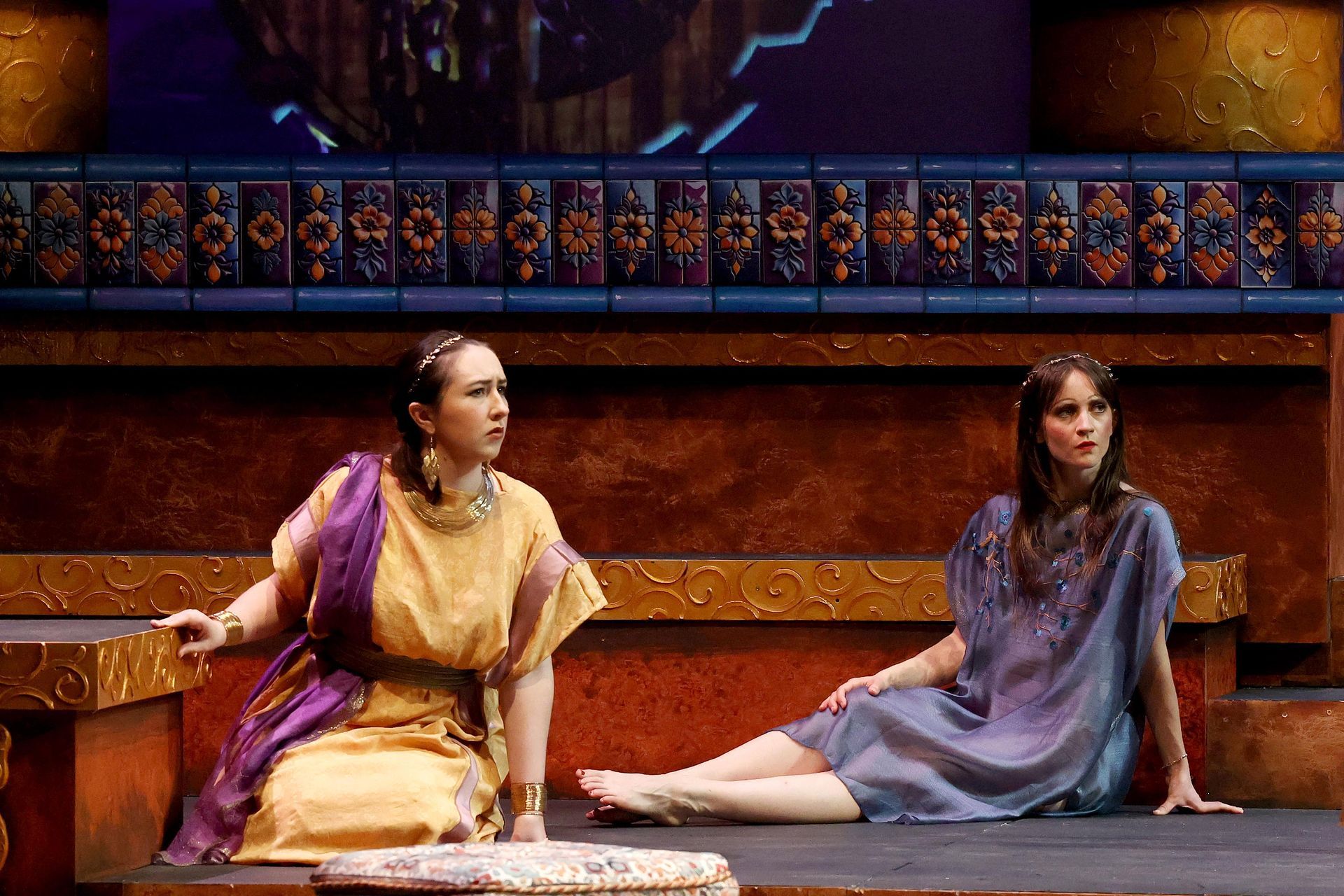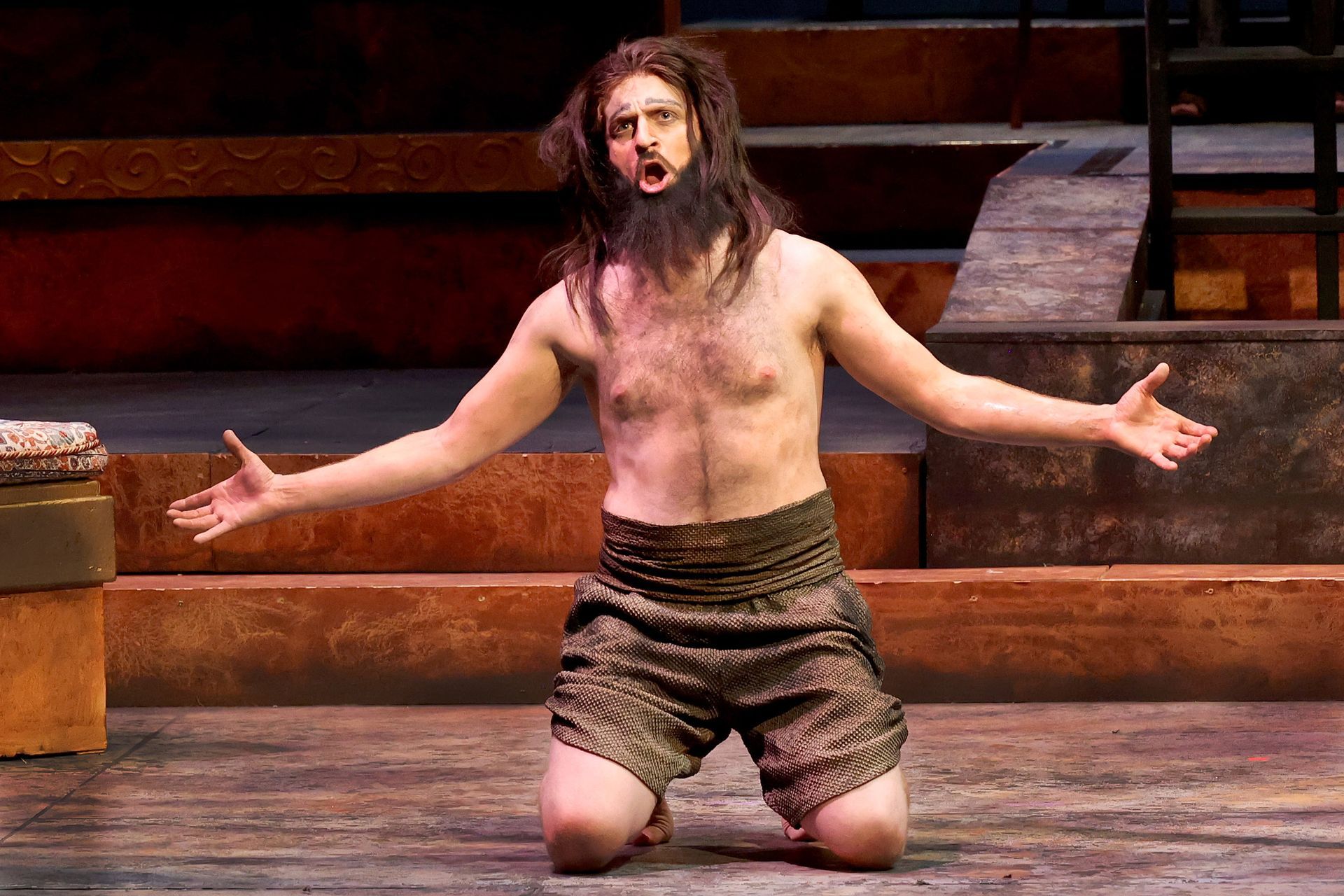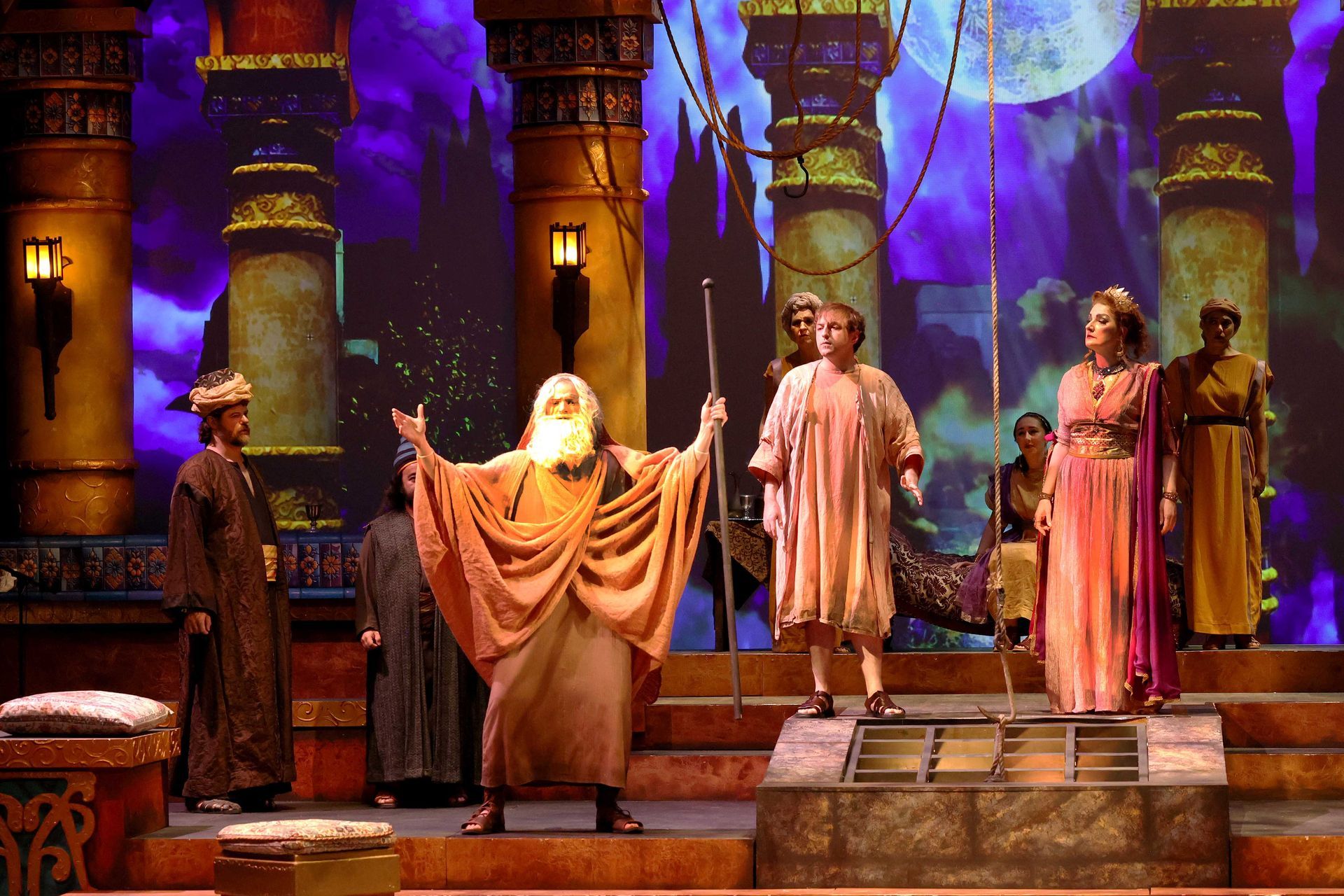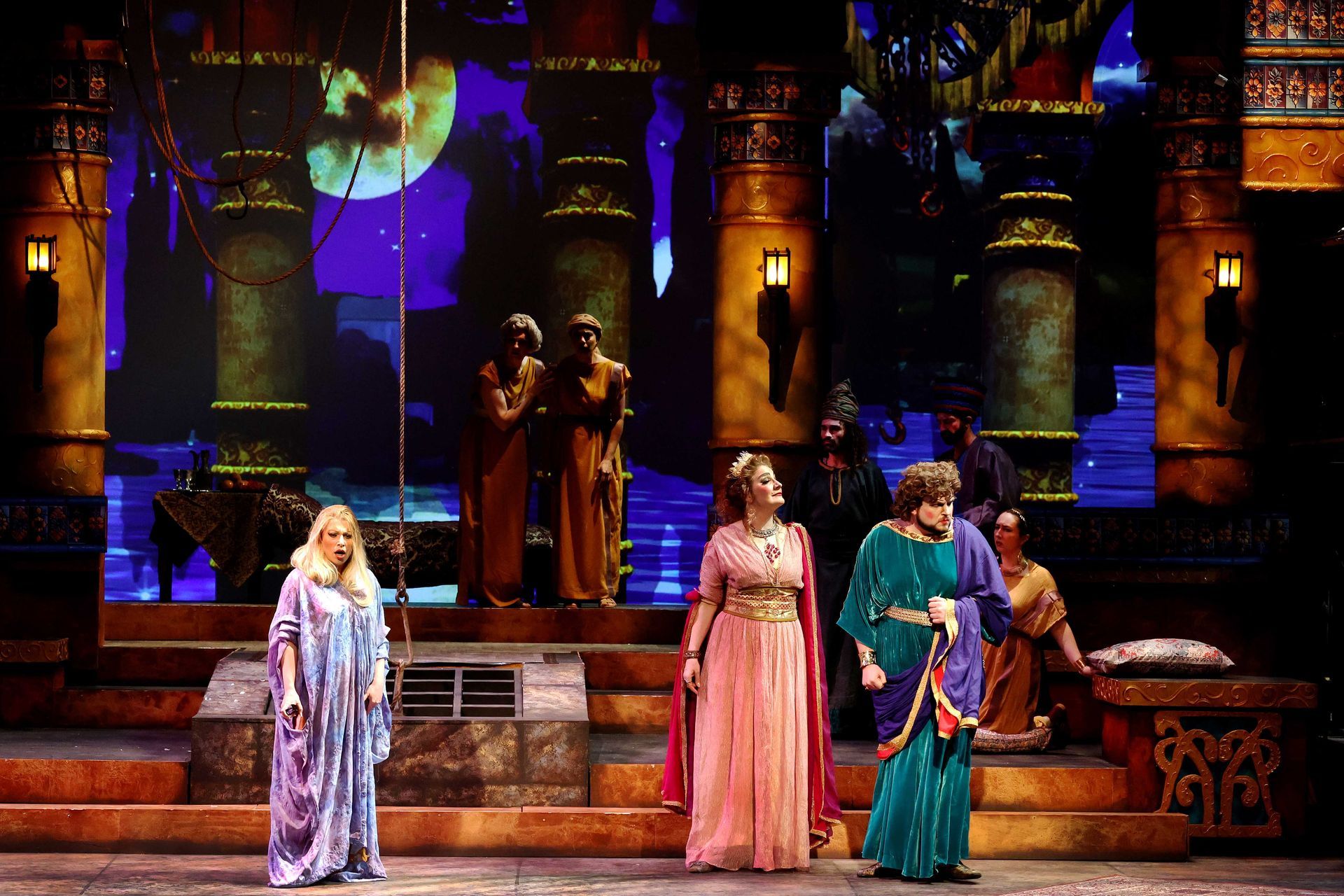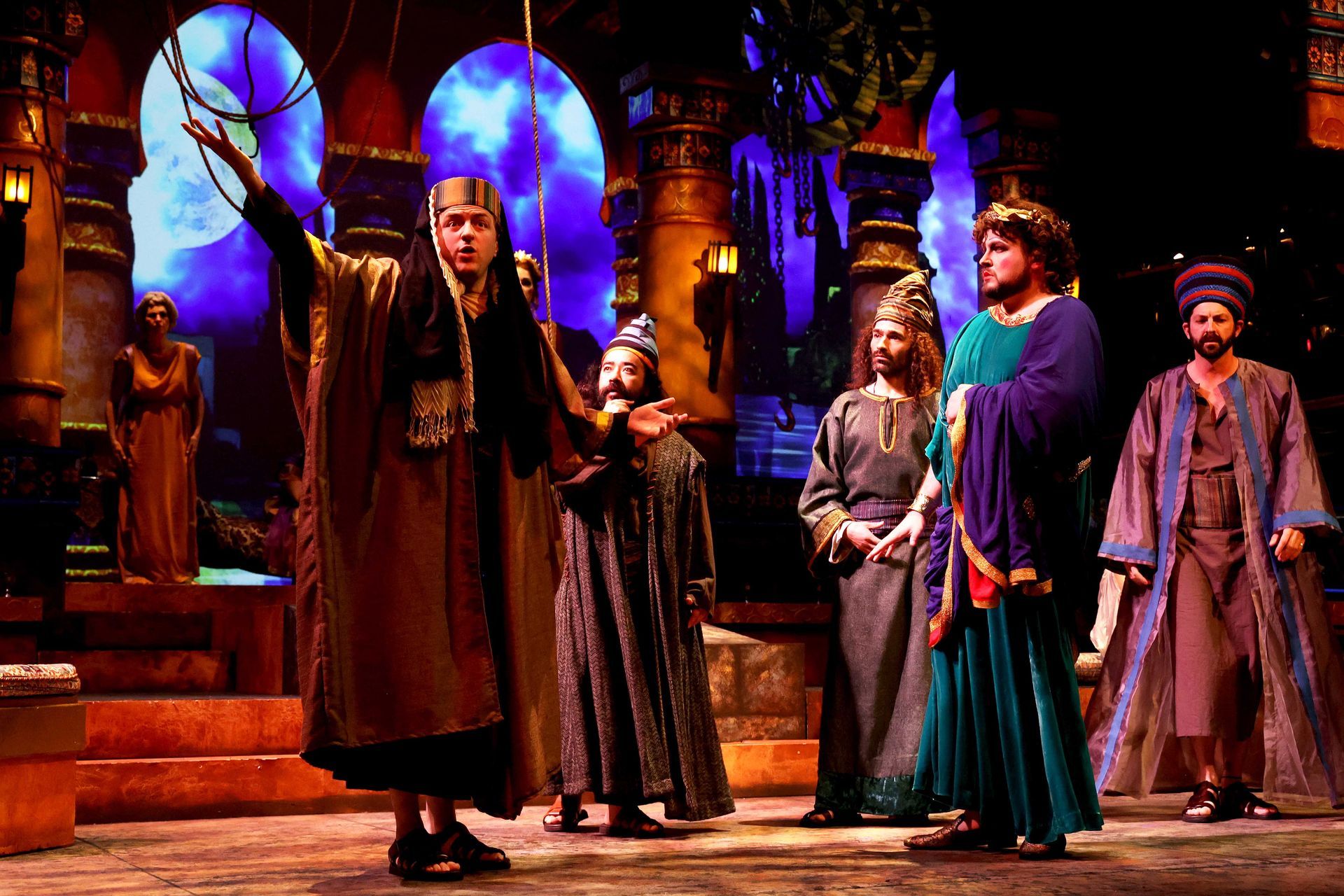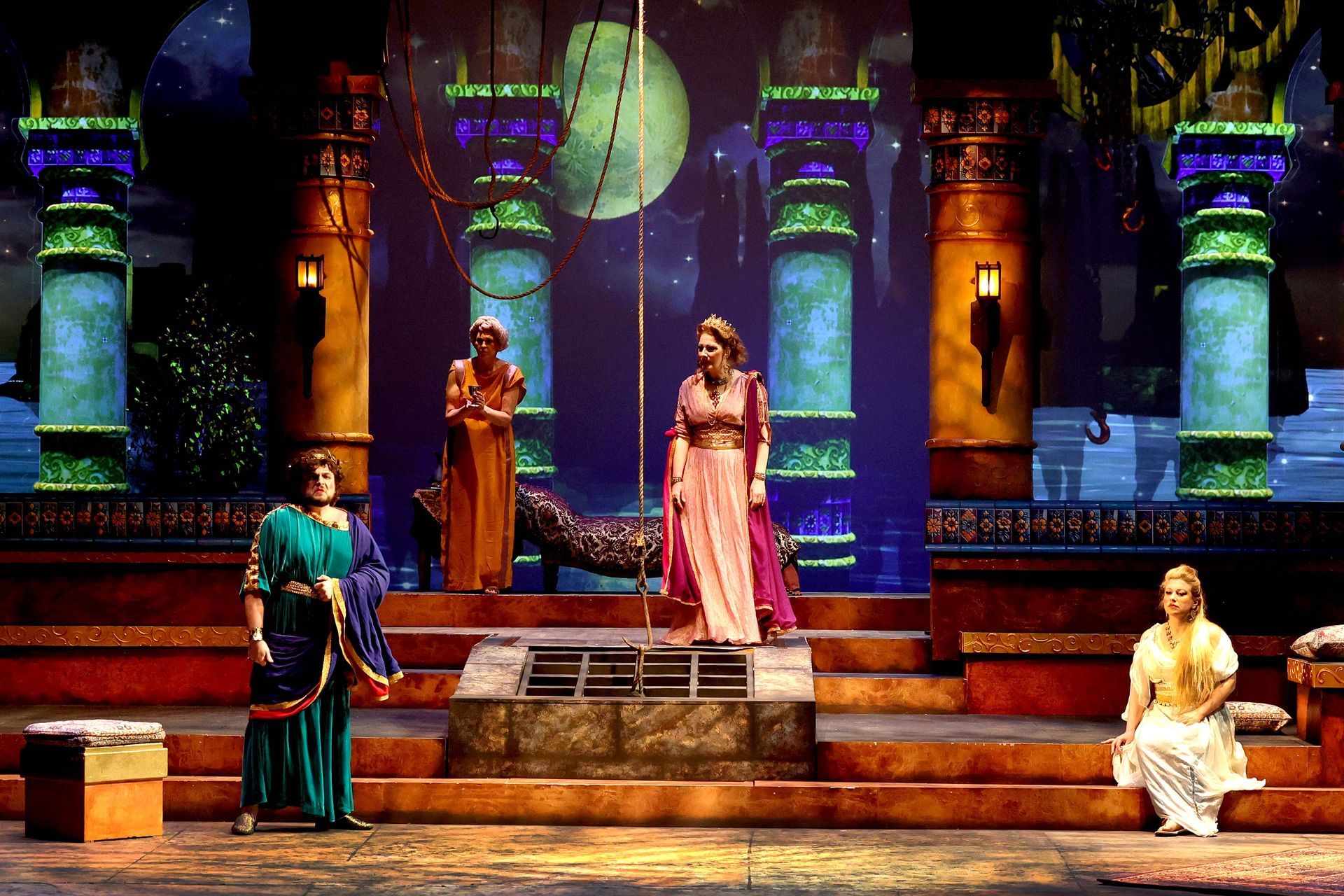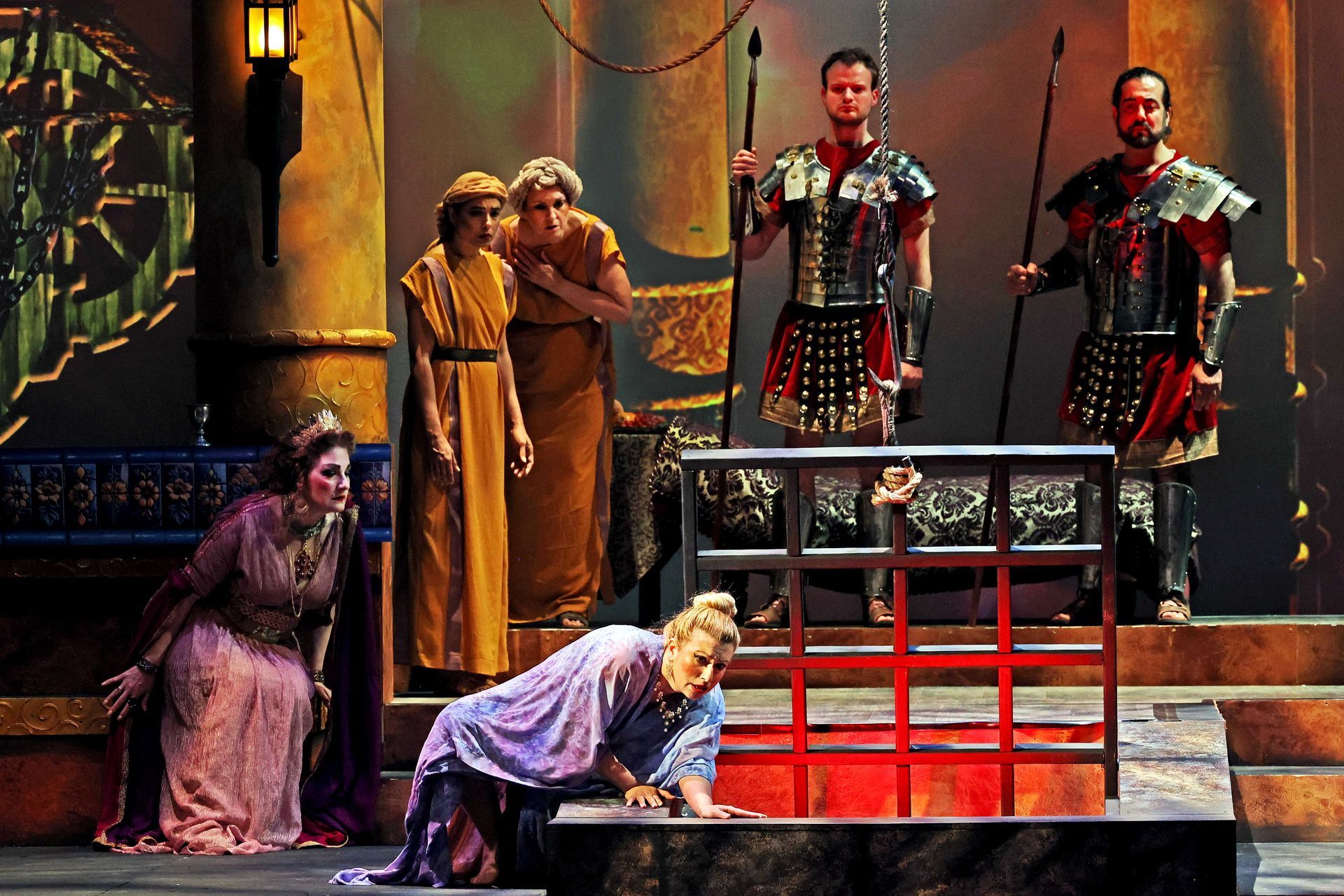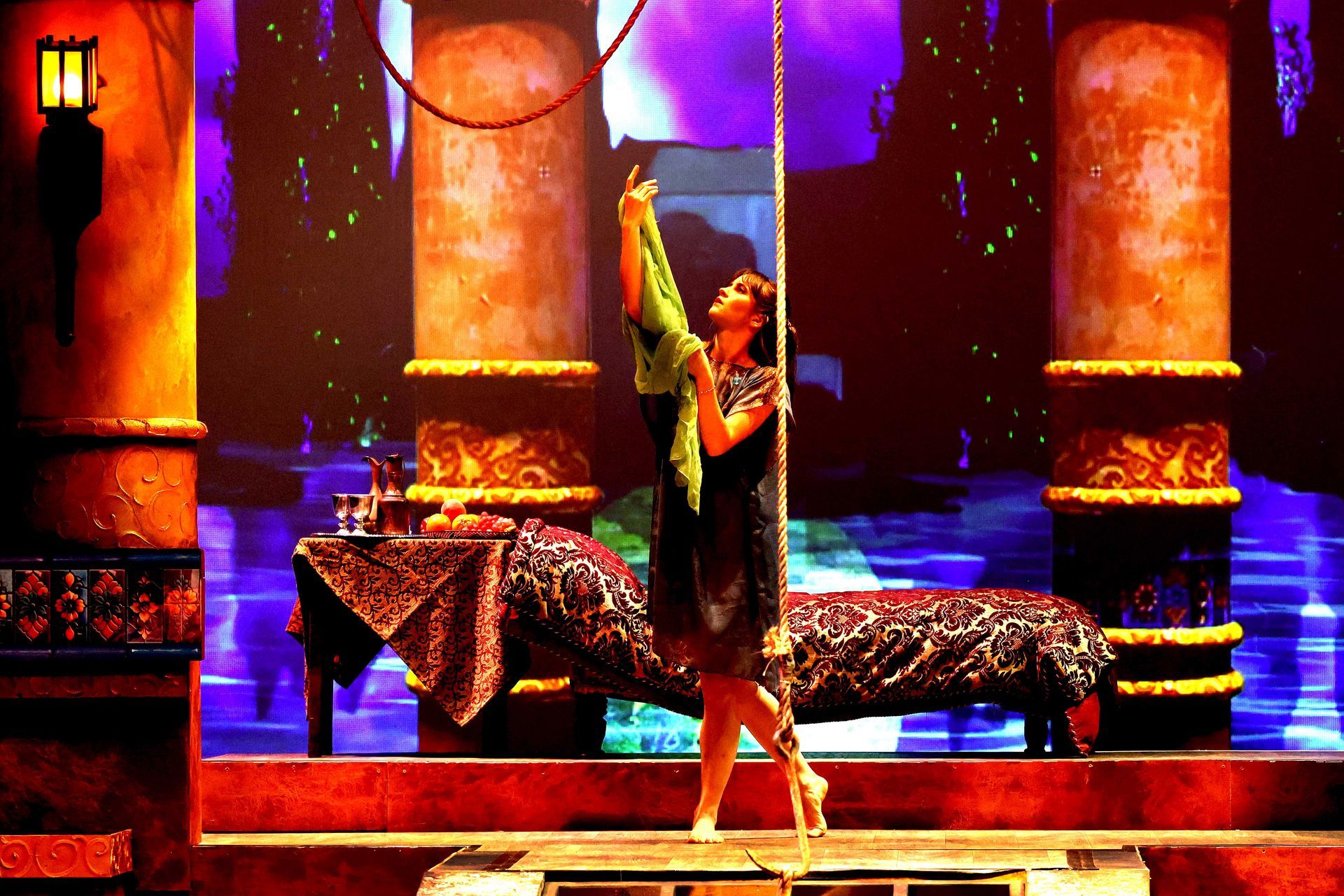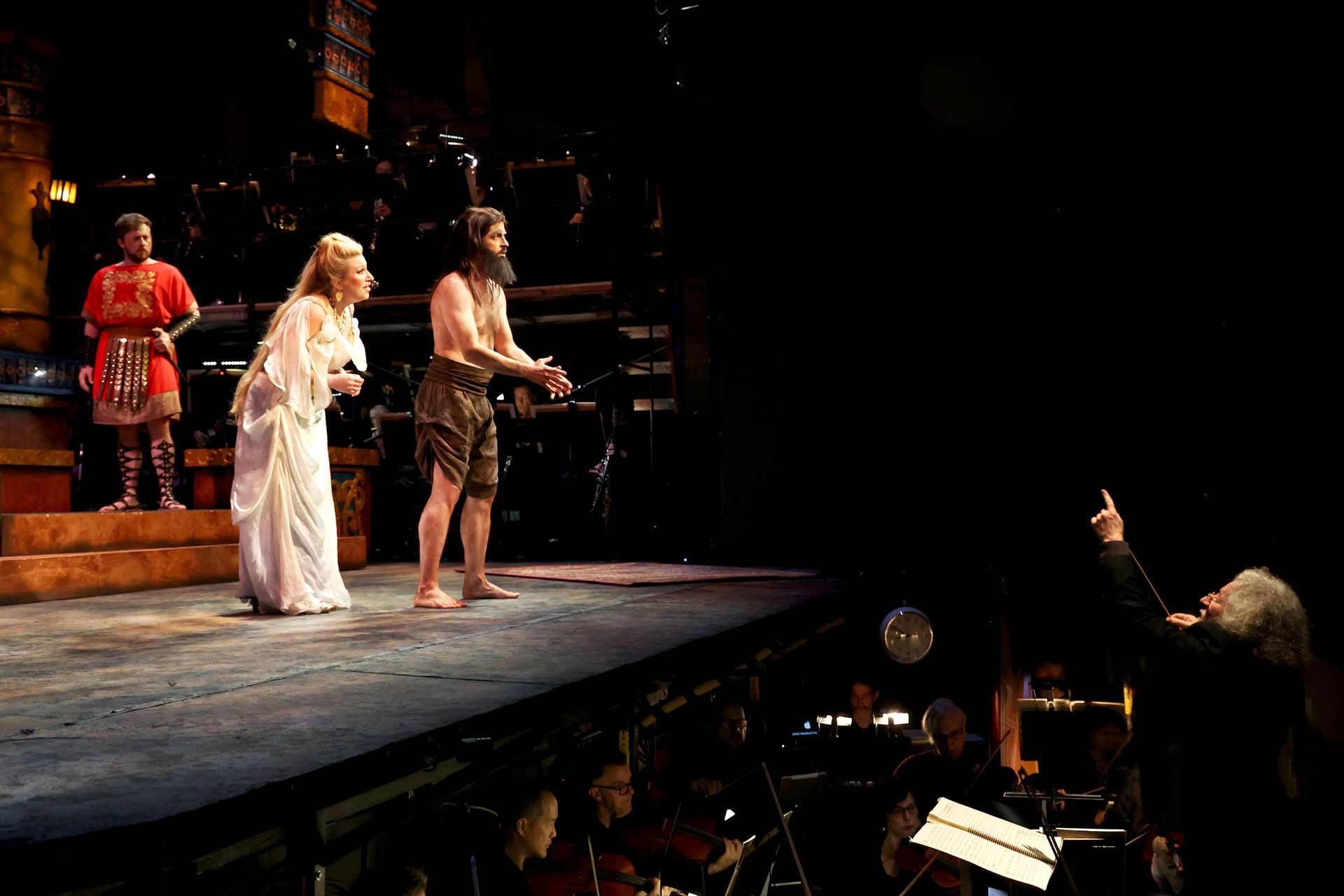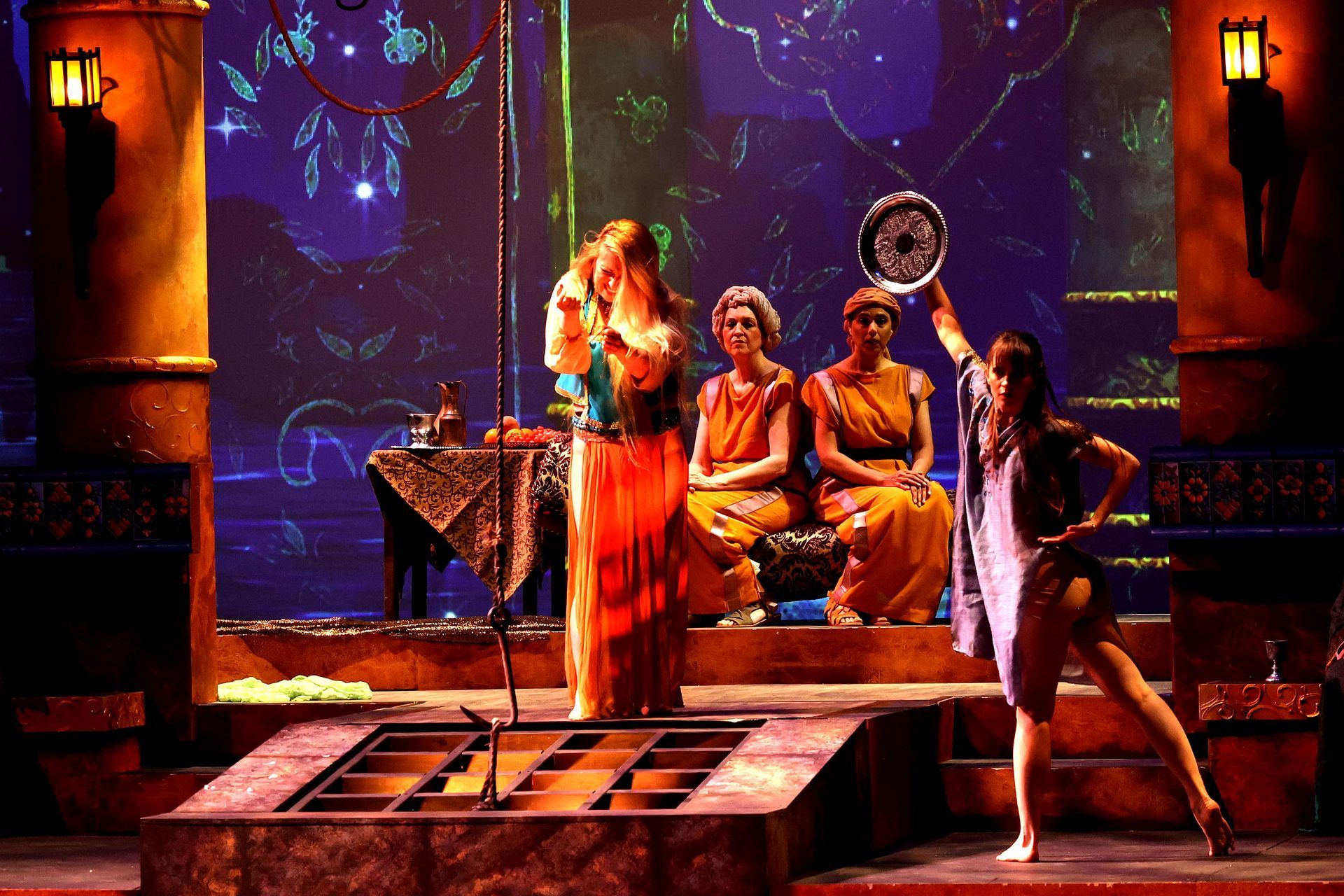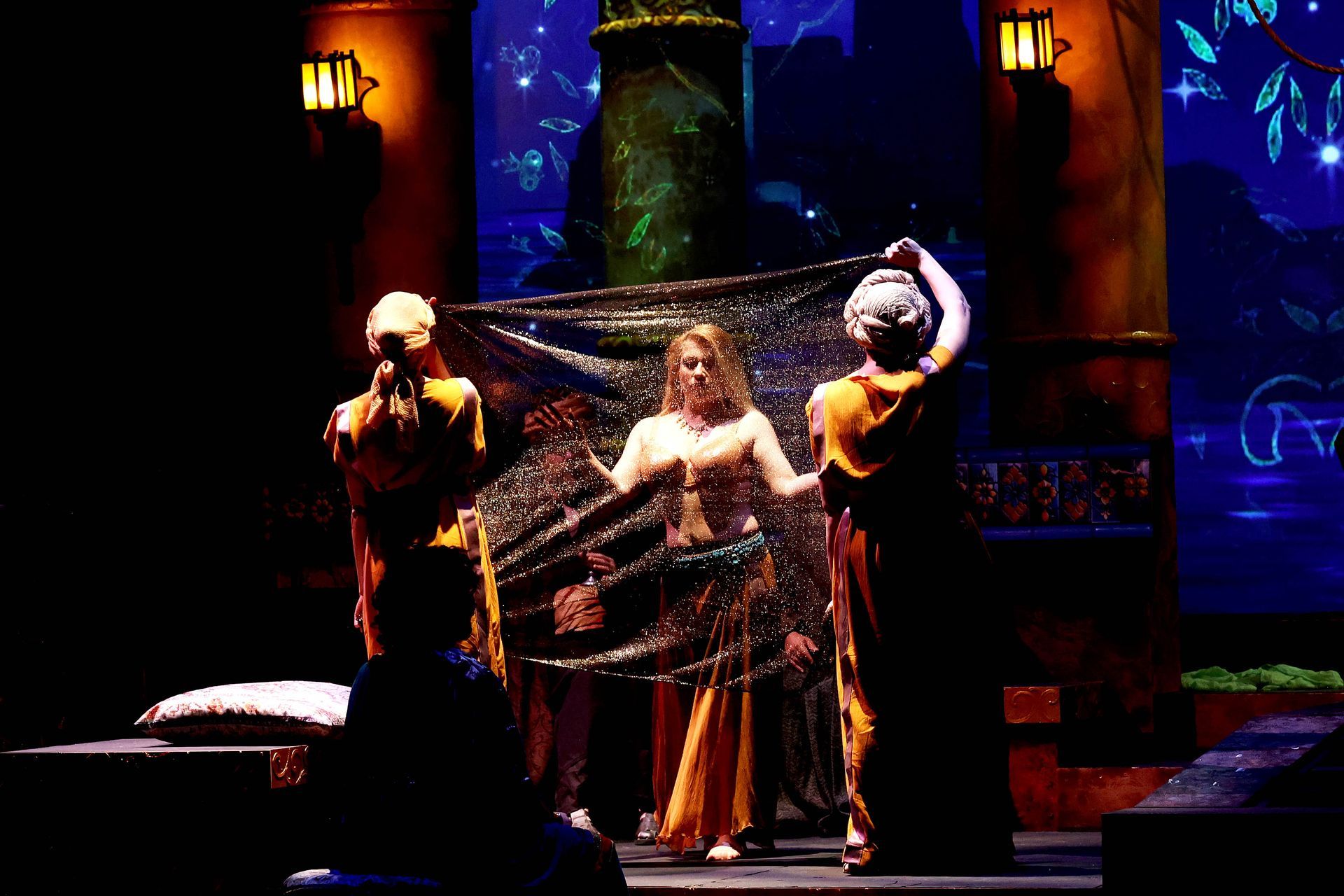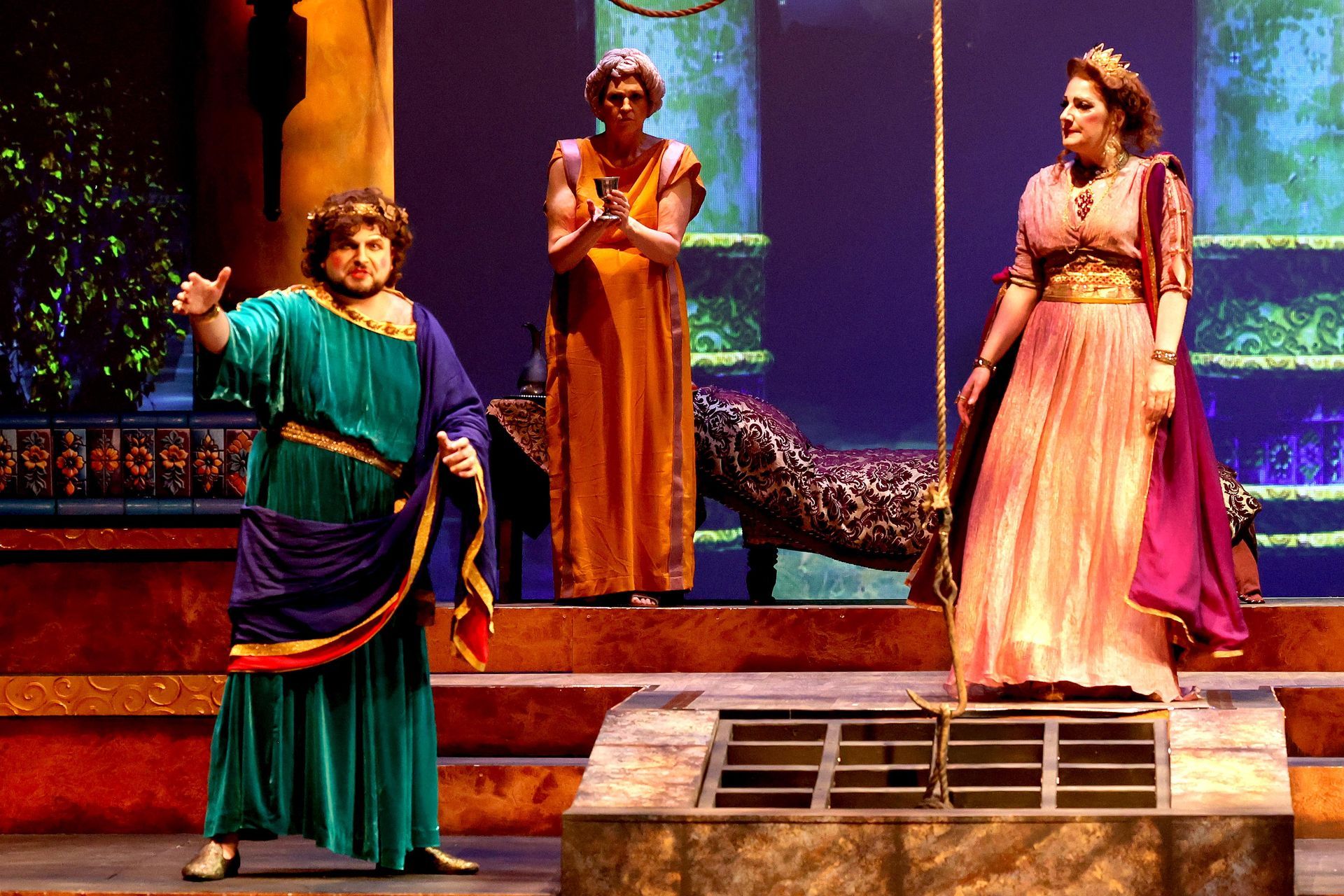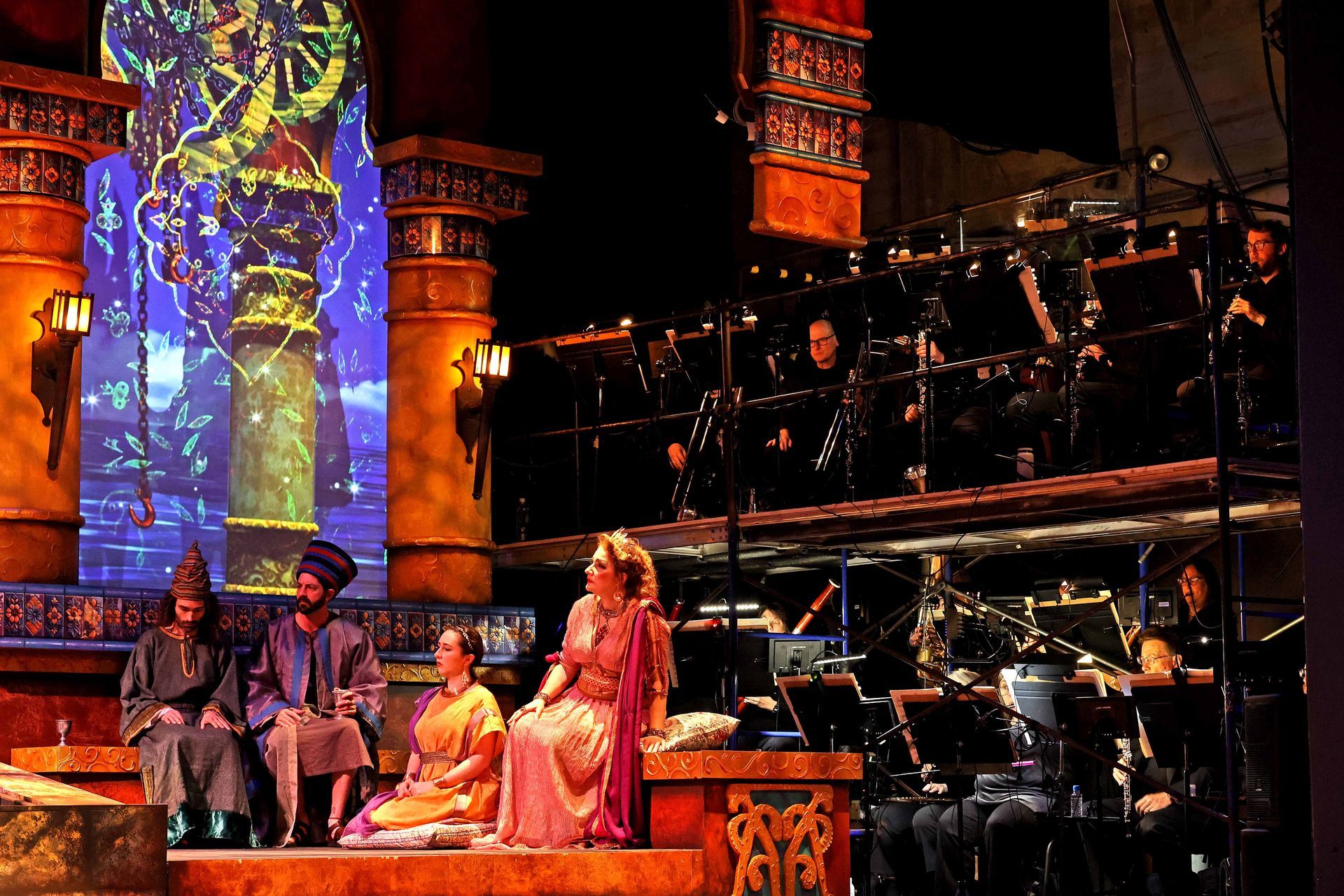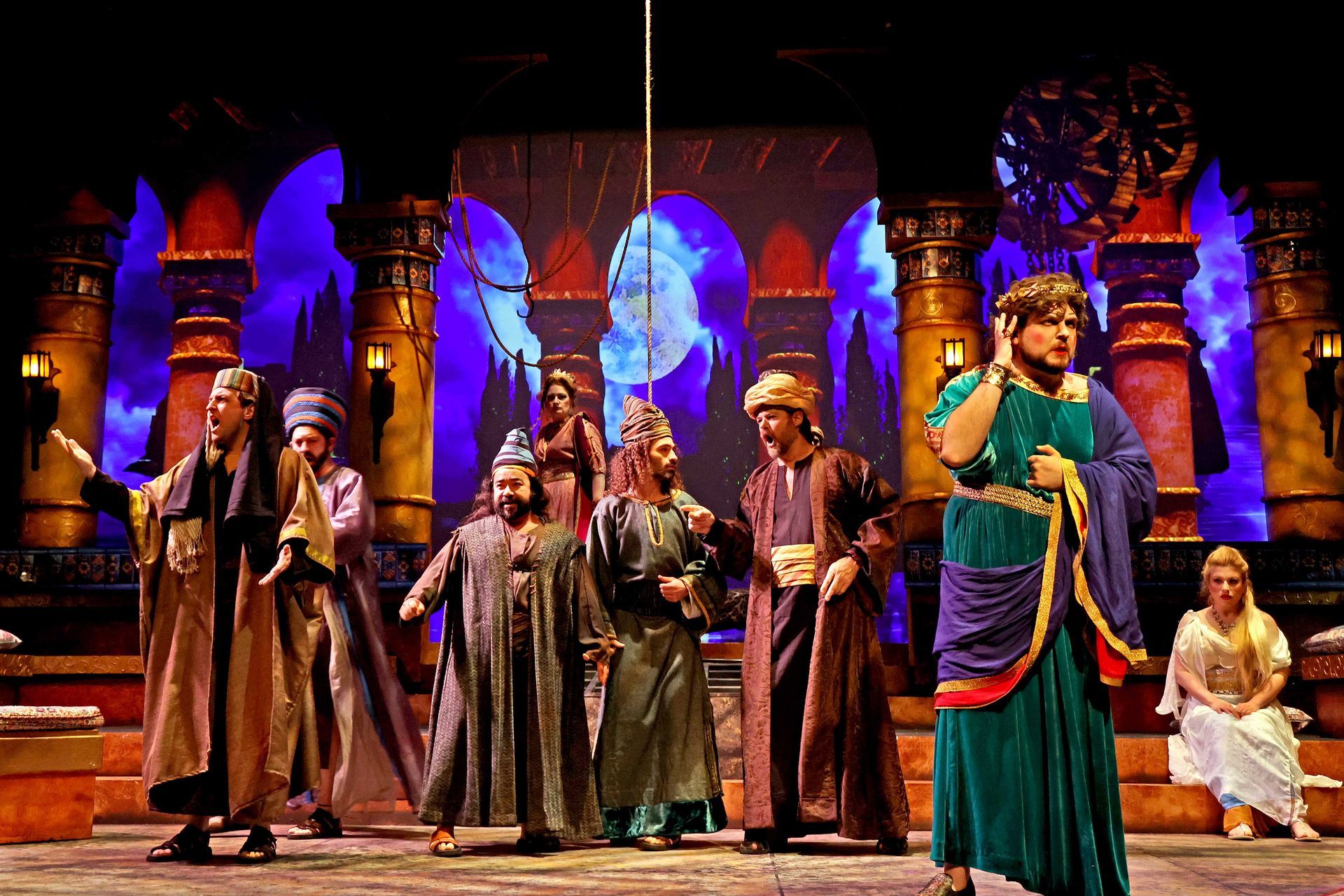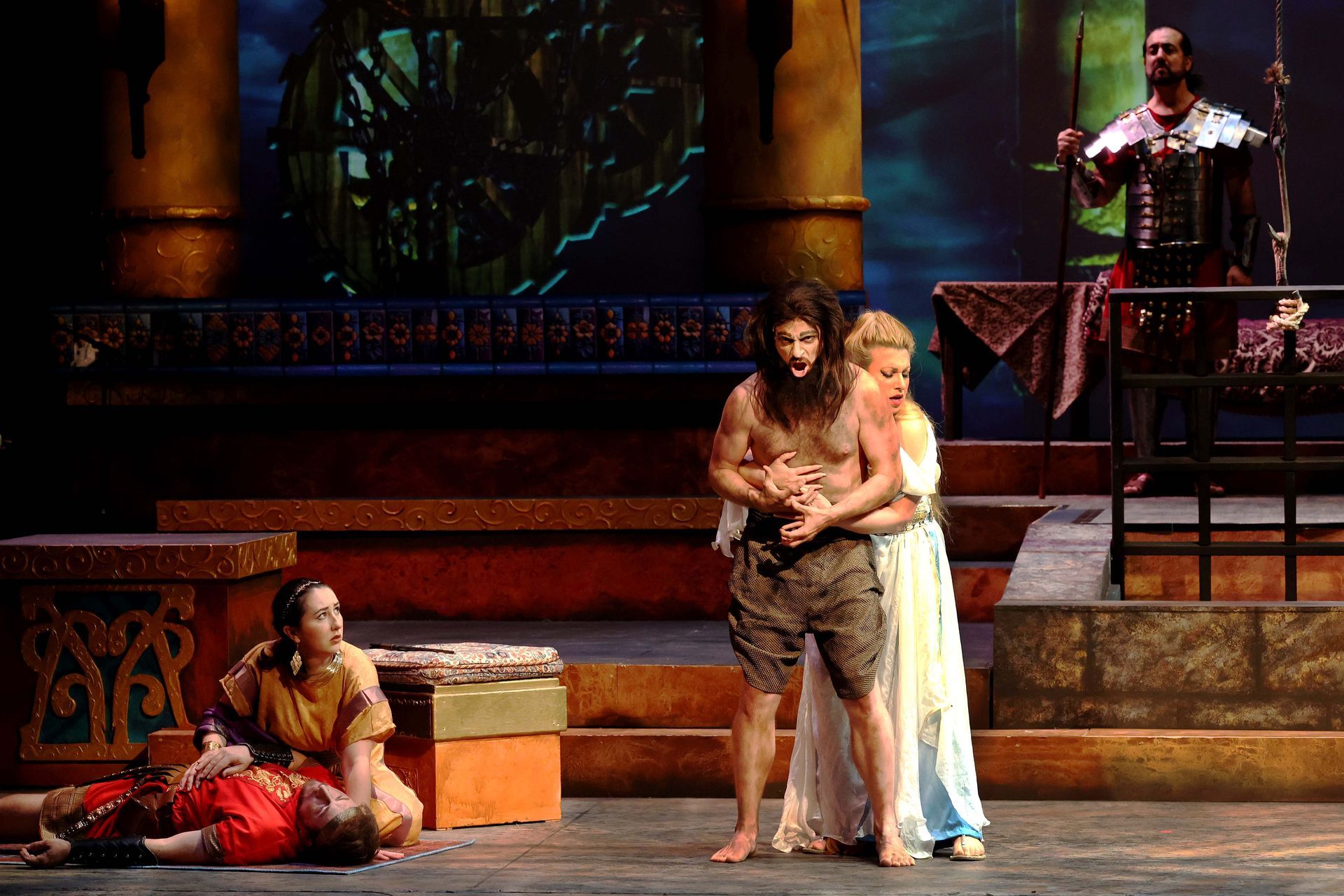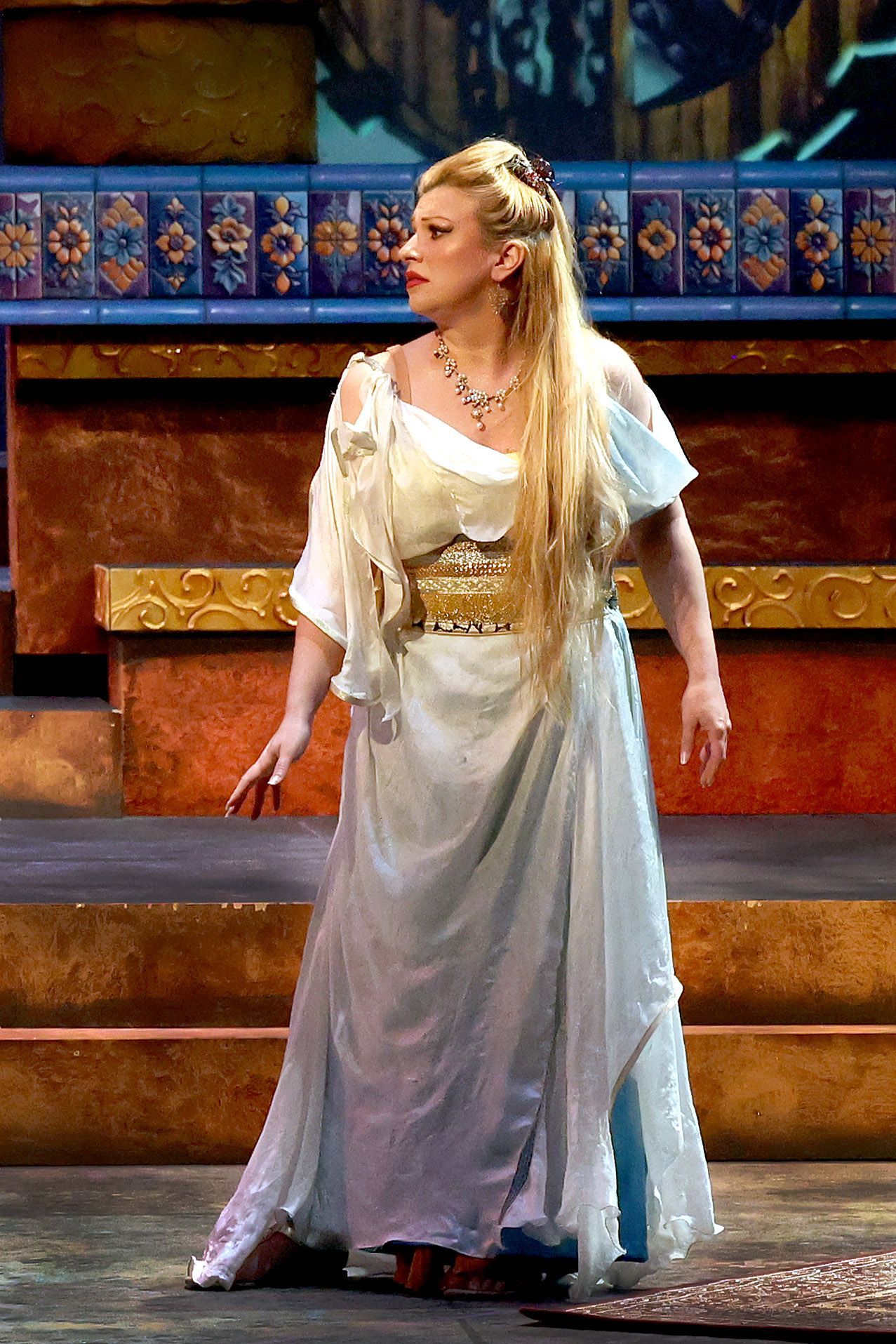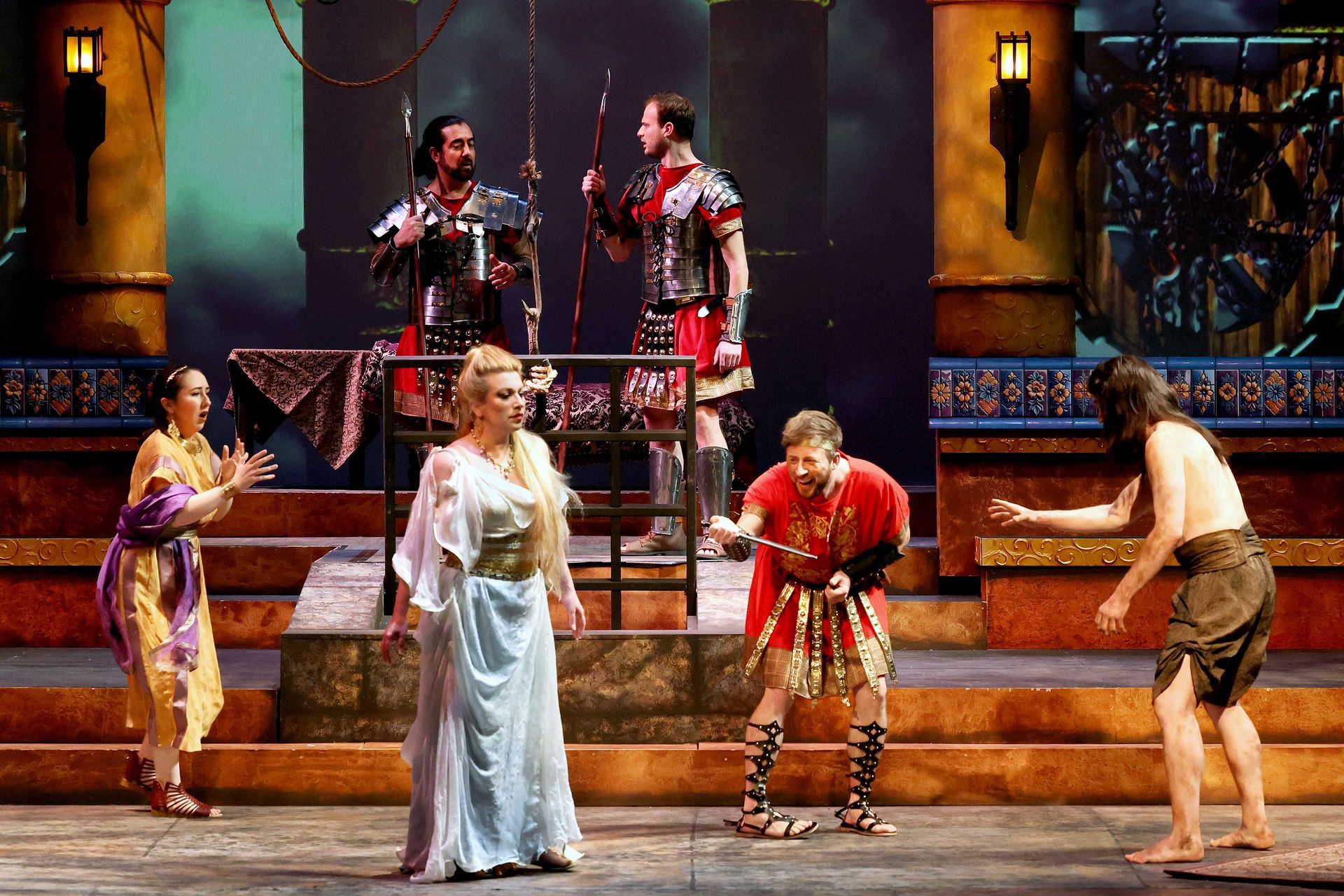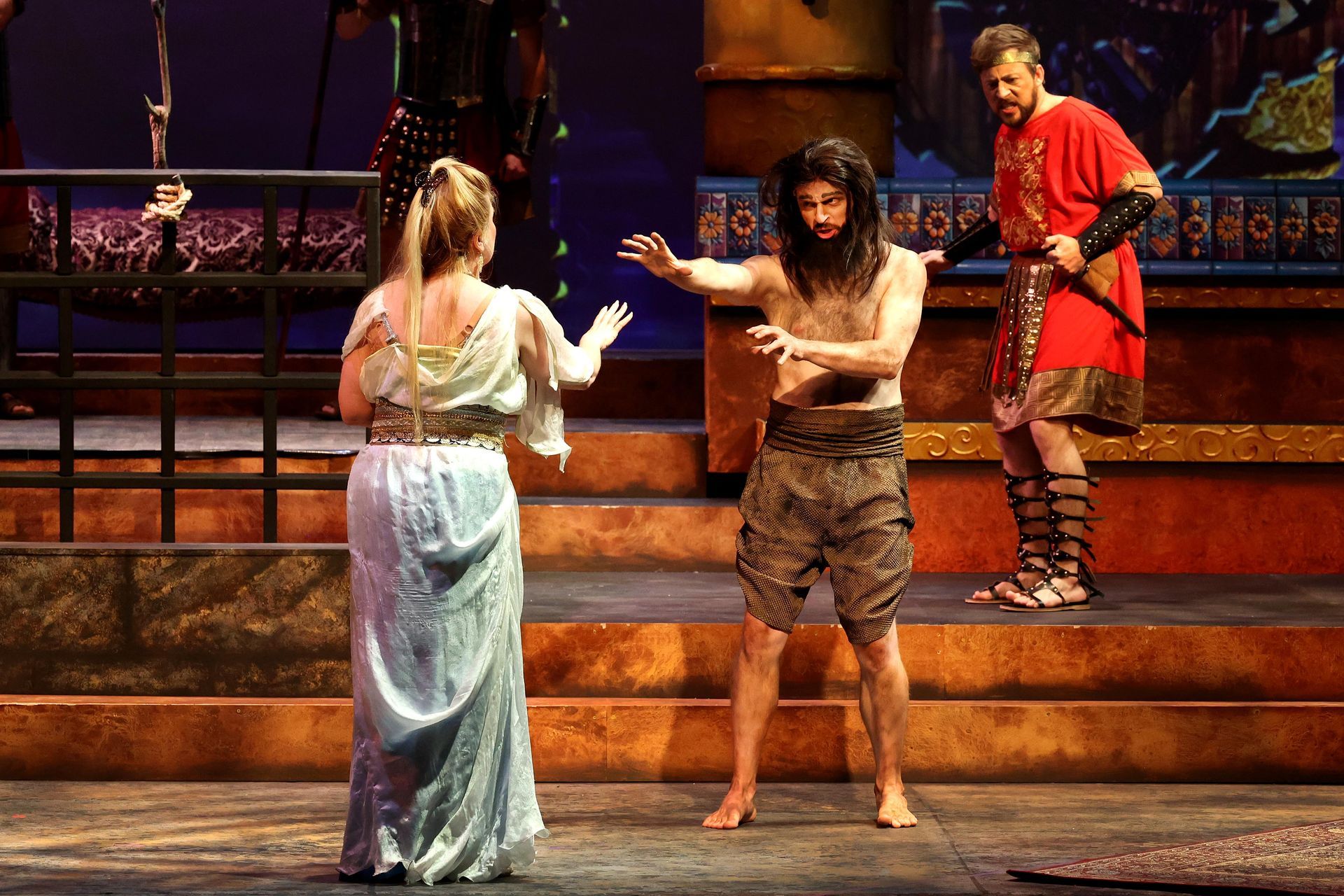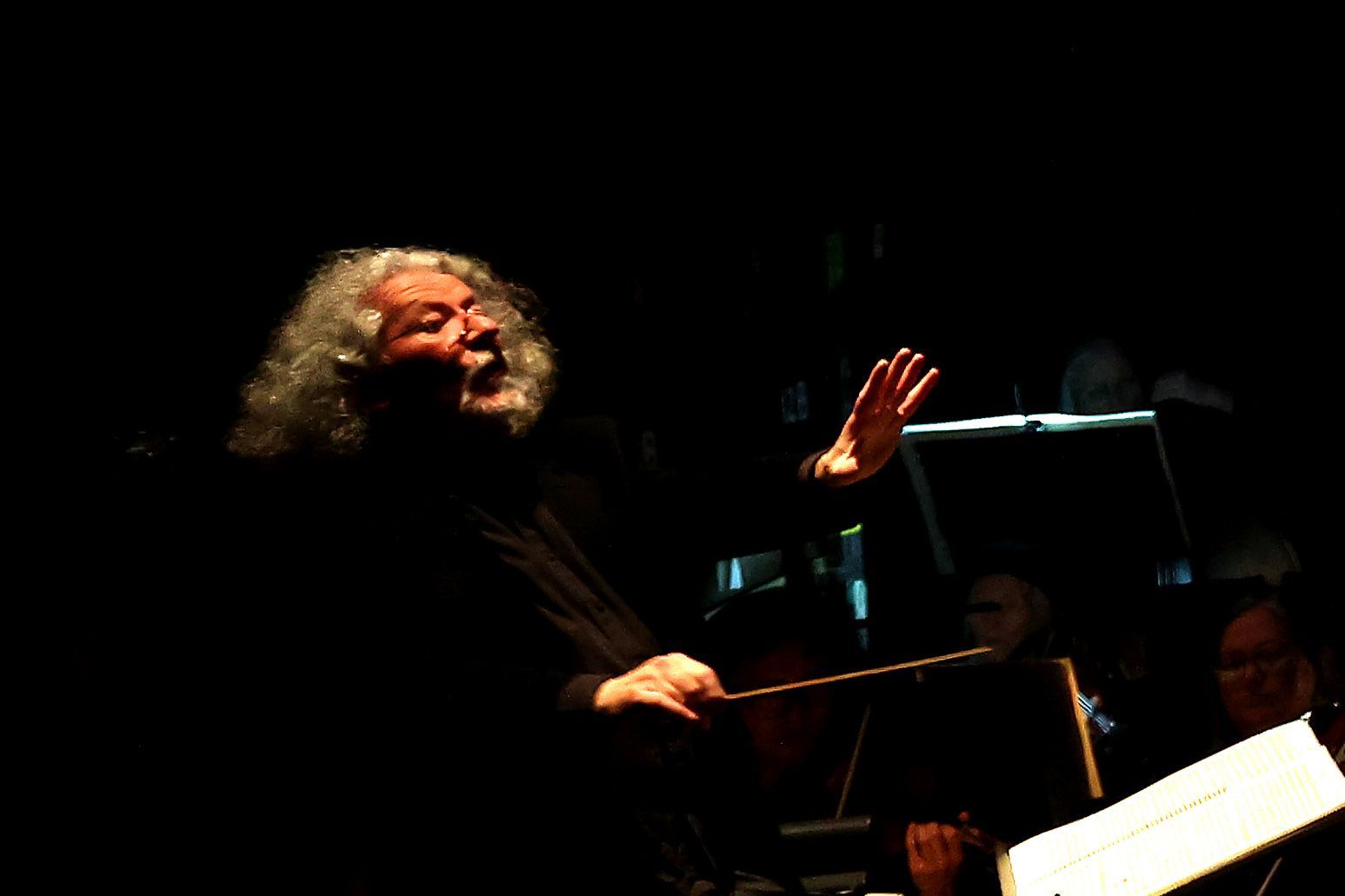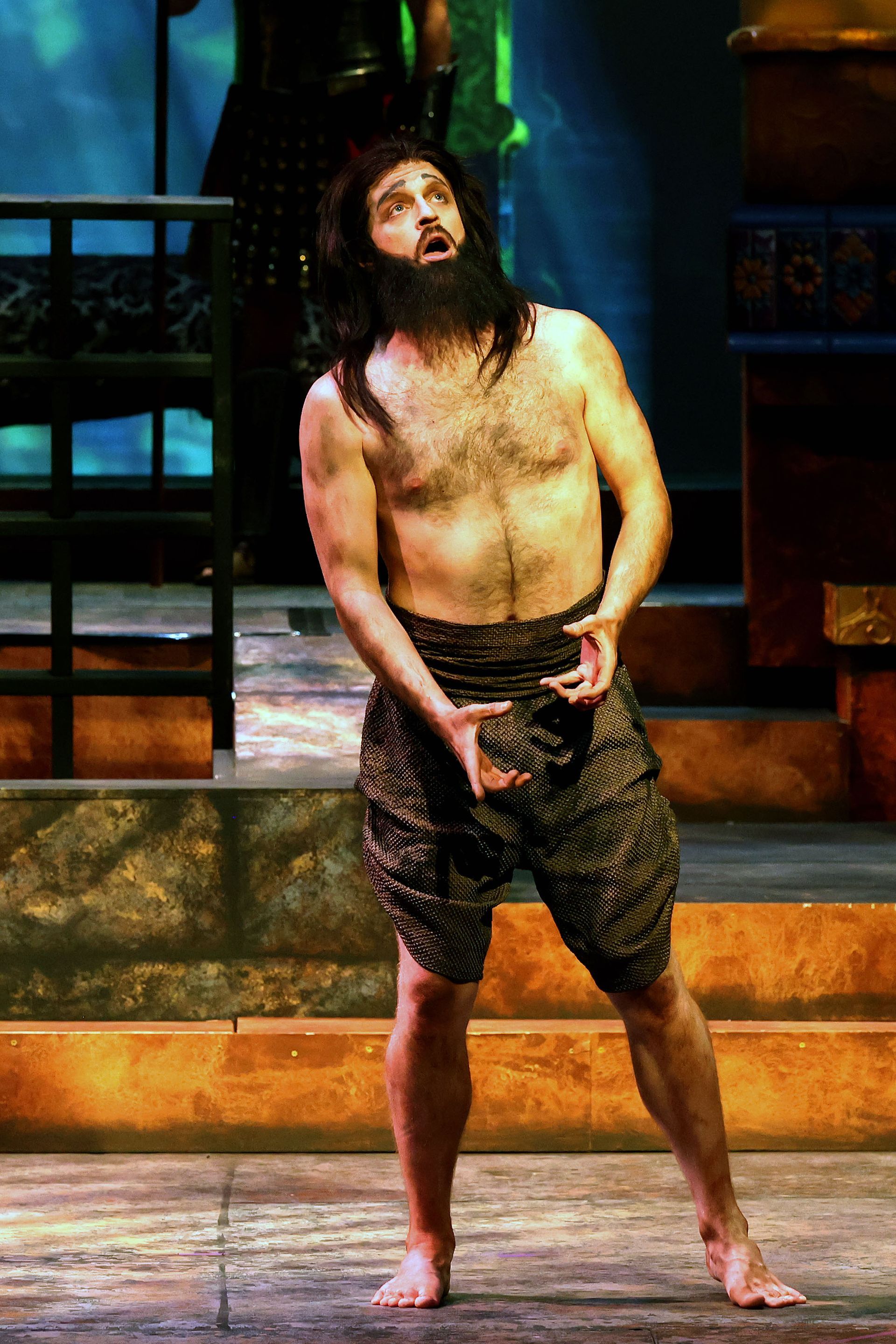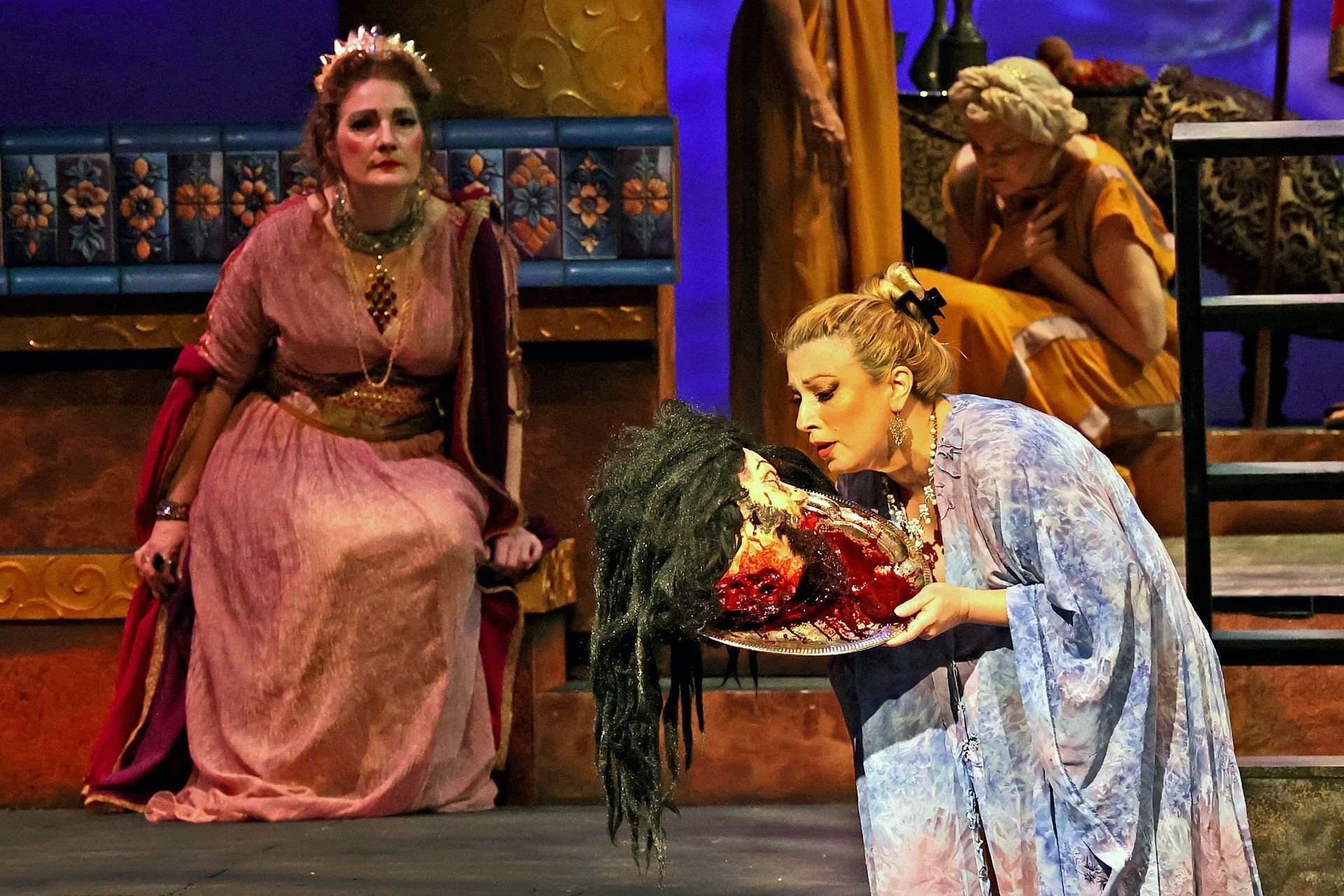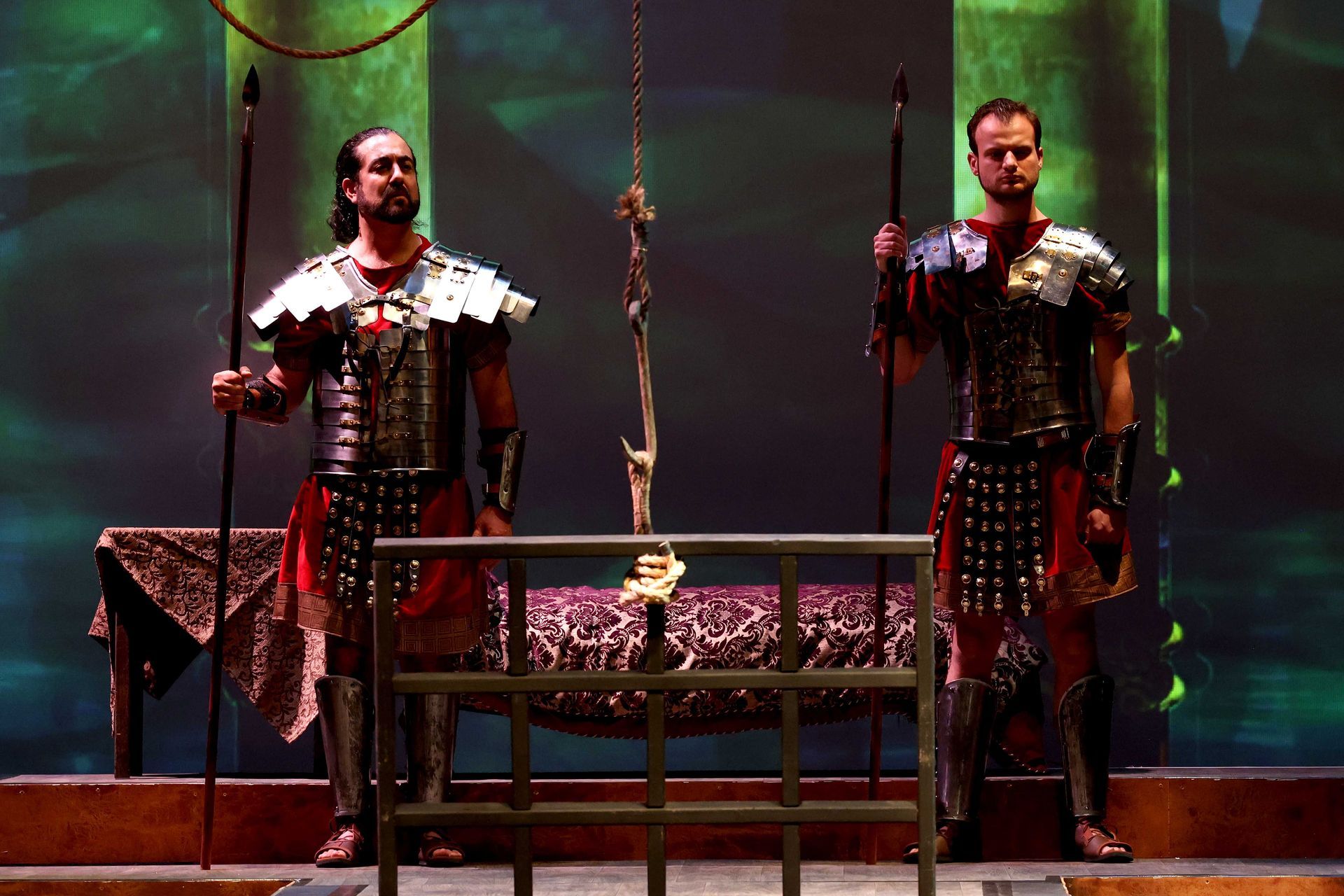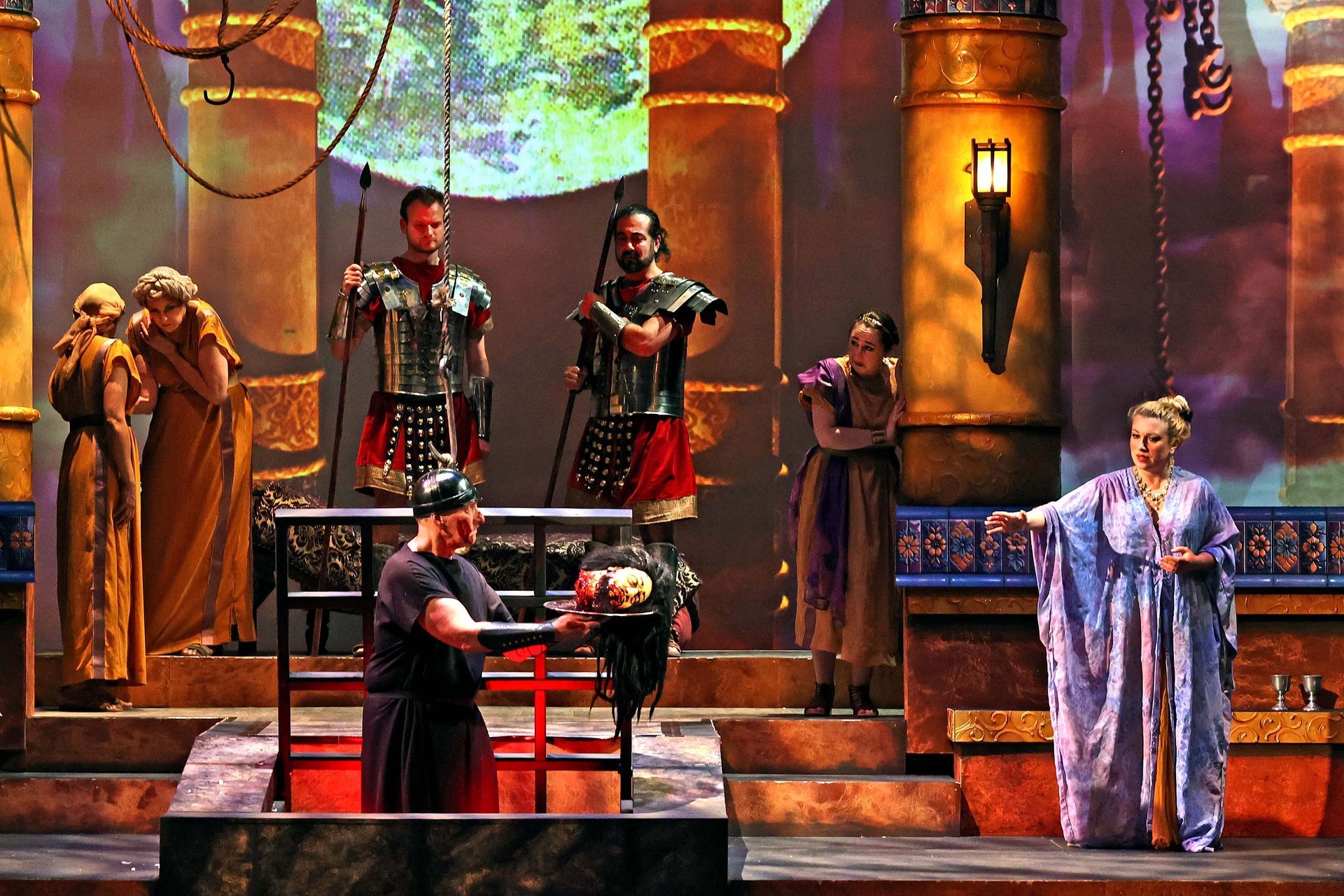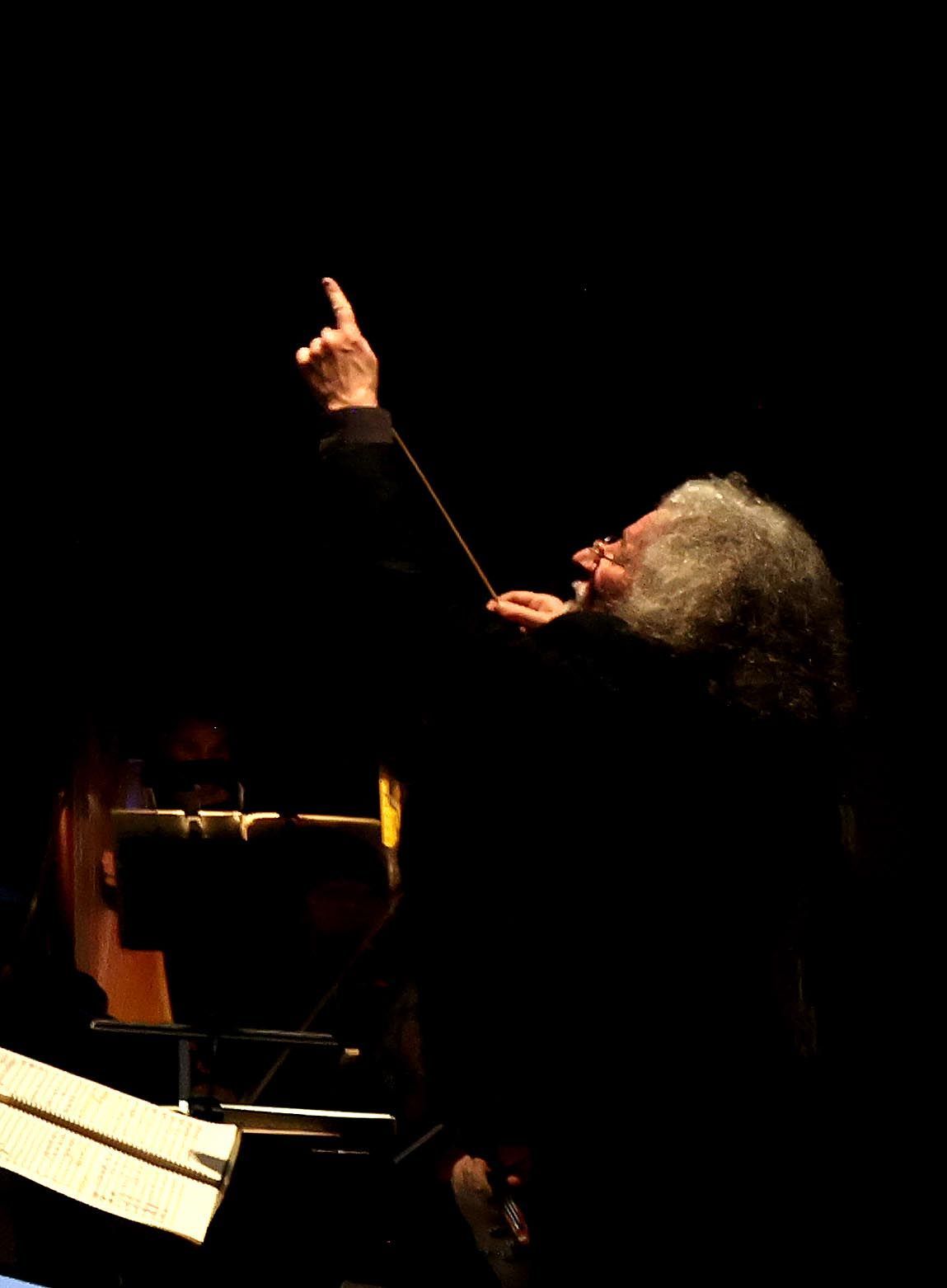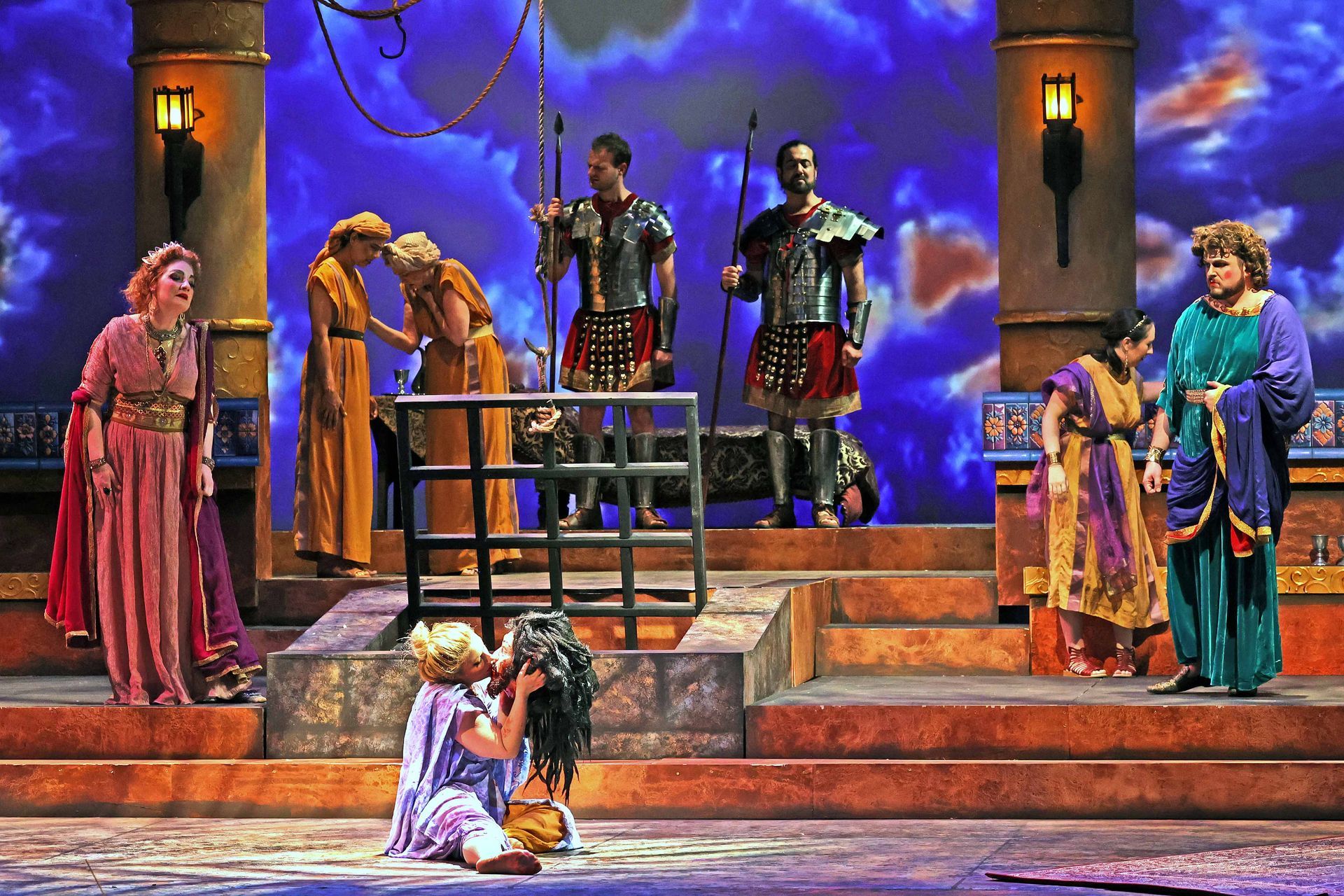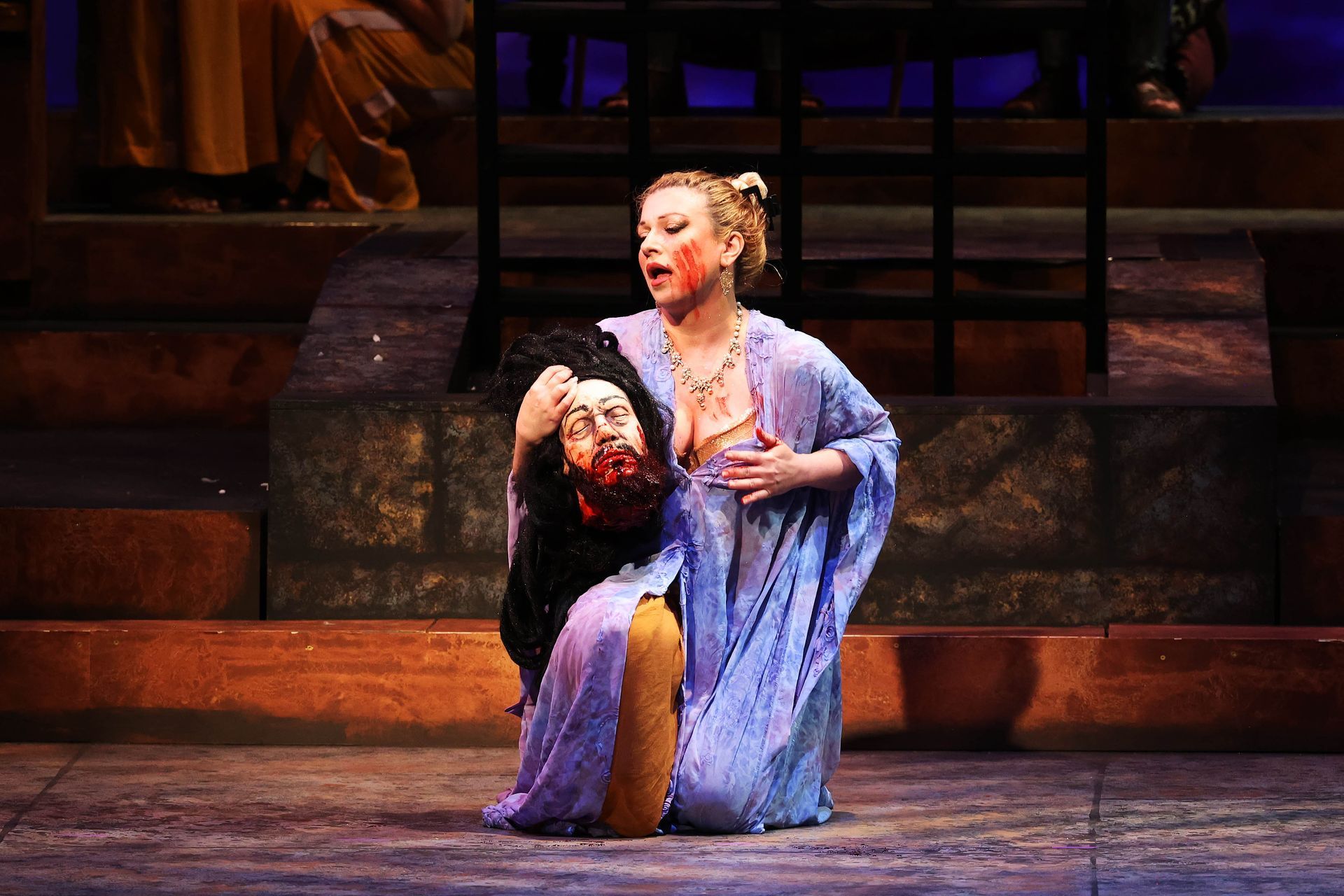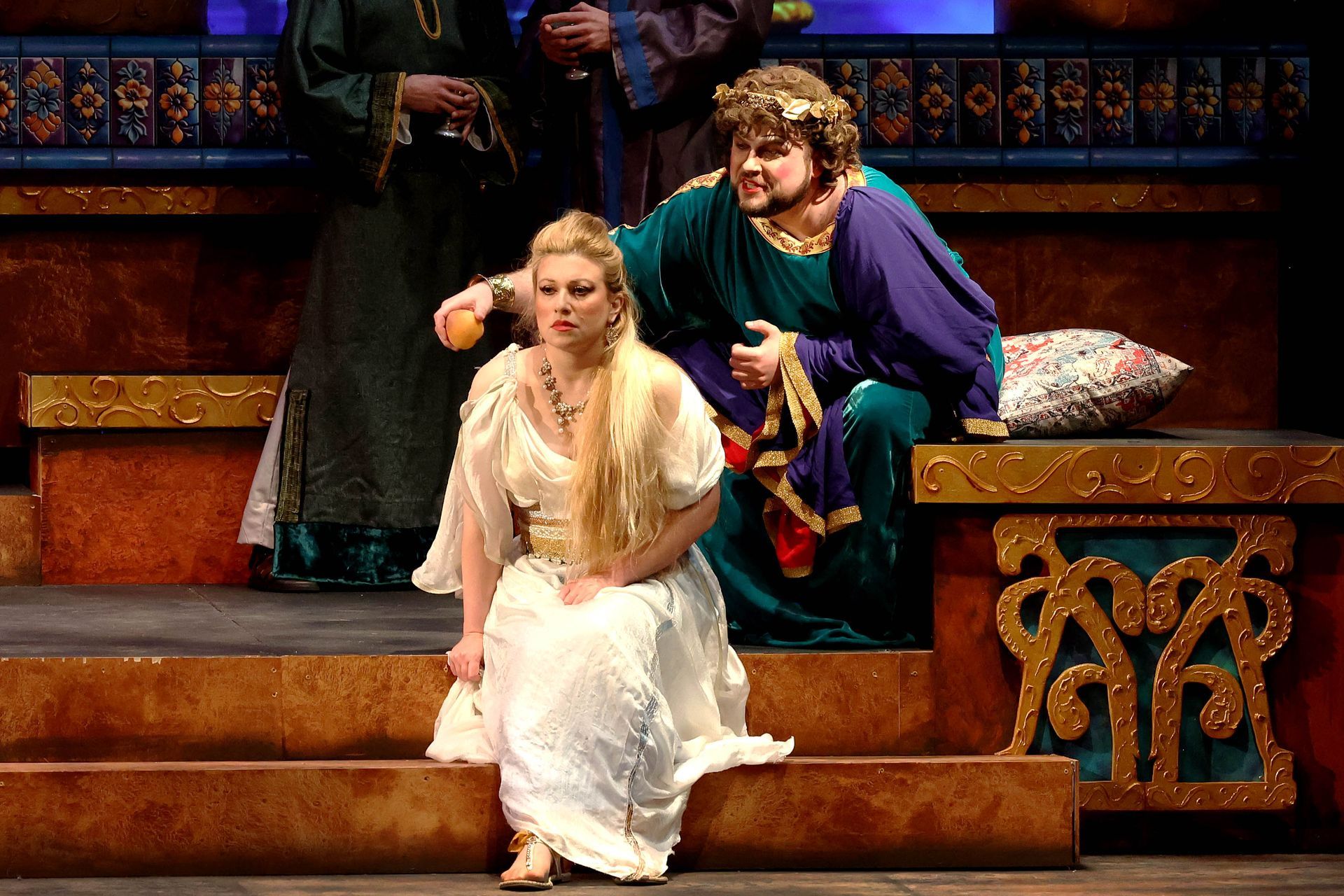
"...a production soaring to the heights musically, visually, and dramatically."
Eddie Reynolds - TheaterEddies
"Led by a sizzling soprano in the central role, exquisite supporting players throughout, and a sonorous and responsive orchestra conducted by Jose Luis Moscovich, West Bay Opera offers a compelling rendition of this powerful work."
Victor Cordell - Berkshire Fine Arts
"West Bay Opera’s ‘Salome’ takes audiences on a wild, wild ride..."
Michael J. Vaughn -The Almanac
Salome
by Richard Strauss
Libretto by Hedwig Lachmann
translated from Oscar Wilde's French language play Salomé
Opera in one act
In German with projected English titles
Friday, Feb 13 - 7 p.m.
Sunday, Feb 15 - 2 p.m.
Saturday, Feb 21 - 7 p.m.
Sunday, Feb 22 - 2 p.m.
at the Lucie Stern Theatre
1305 Middlefield Rd., Palo Alto, CA 94301
Performances are 1 hr 50 min long with no intermission
FREE Preview with Piano
Thursday, Feb 5, 2026 - 7:00 p.m.
at the
Holt Building
221 Lambert Ave, Palo Alto, CA 94306
About
Salome
Background and Synopsis
World Premiere: Königliches Opernhaus (now Semperoper) - Dresden, Germany
WBO Premiere: May 26, 2017
Pictured: Interior view of the Semperoper
Strauss composed Salome after seeing Max Reinhardt's staging on the Oscar Wilde play, which used Lachmann's German translation, in Berlin in 1902. Not unlike Samson et Dalila, it is also a work about feminine power, eroticism and ritual sacrifice, and, though it reached the stage three decades after Samson et Dalila, it initially encountered similar censorship and social rejection. Eventually, it made its way into the standard repertoire.
Although the grit and violence components are the most tantalizing, Salome is actually a work of great beauty and great dramatic power. Salome's rejection of her stepfather's sexual advances, her infatuation with Jochanaan (John the Baptist) and her choice to have him beheaded are steps in a story that develops inexorably, and Strauss' fantastical, highly romantic and atmospheric score makes every step along the way seem inevitable.
Synopsis
The story takes place in the first century CE, during Jesus' lifetime, after the Roman conquest of the Levant. Herod Antipas has been anointed Tetrarch of Galilee and Perea. He has divorced his first wife and married Herodias, who was formerly married to his brother. Herod lusts after Herodias' teenage daughter Salome. The opera opens on the terrace of Herod's palace in Tiberias, outside the banquet hall where Herod is entertaining Roman dignataries.
Jochanaan (John the Baptist) has been imprisoned in the cistern for criticizing Herod's marriage to Herodias. Salome flees the banquet and Herod's lustful gaze, and as she enters the terrace she hears Jochnaan's voice cursing her mother. She takes an interest in him and persuades one of the guards to bring him out of the cistern. She is instantly infatuated with him, commenting on his skin, his hair and his lips, and begging him for a kiss. But Jochanaan rejects her, calling her the daughter of Sodom. Herod comes out, followed by his entourage and tries to engage Salome, inviting her to drink, eat and rest, but she rebuffs him. Finally, he begs her to dance for him. She agrees after he promises to give her whatever she desires. She dances the Dance of the Seven Veils, after which she demands as her reward the head of Jochanaan. Herod, who recognizes in Jochanaan a holy man, is afraid to harm him and tries to persuade her with extravagant gifts but she insists, and he eventually agrees. She is handed the severed head. In a chilling final scene, she sings a long monologue about the meaning of love and power. Eventually she kisses the bloody lips and boasts that she has kissed Jochanaan even though he rejected her. Shaken by the spectacle, Herod orders the soldiers to kill her on the spot.
Creative team
José Luis Moscovich - Conductor
Richard Harrell - Stage Director
Daiane Lopes da Silva - Choreographer
Peter Crompton - Set and Projection Designer
Callie Floor - Costume Designer
Danielle Ferguson - Lighting Designer
David Gillam - Makeup and Wig Designer
Giselle Lee - Sound Designer
Pictured: floor plan for a set design by Peter Crompton
for the 2016 production of Salome at WBO
Cast
Salome - Joanna Parisi*
John the Baptist - Nathaniel Sullivan*
Herod - Will Upham*
Herodias - Laure de Marcellus
Narraboth - Brian Skoog*
Page - Valérie Filloux*
First Soldier - Isaiah Musik-Ayala
Second Soldier - Casey Germain
1st Jew - Arthur Wu
2nd Jew - Carmello Tringali
3rd Jew - Caleb Alexander*
4th Jew - Michael Orlinsky
5th Jew - Kirk Eichelberger
1st Nazarene - Casey Germain
2nd Nazarene - Caleb Alexander
Cappadocian - Kirk Eichelberger
Slave - Lindarae Polaha
* First appearance with WBO
Orchestra
Dian Zhang, concertmaster *
Violin I · Sofia Fojas, Virginia Smedberg, Kate Wahl
Violin II · Lisa Zadek, Frida Pukhachevsky
Gulnar Spurlock, Julian R. Brown
Viola · Andrew Lan, Mark Fish, Donny Lobree
Cello · Janet Witharm, Daniela Gonzalez Siu, Maya Raquel Benyas*
Bass · Marie Laskin
Flute 1 · Michelle Caimotto
Flute 2/Piccolo · Vivian Boudreau
Oboe 1 · Dane Carlson
Oboe 2/English Horn · Troy Davis
Bassoon 1· Amy Duxbury
Bassoon 2 · Gail Selburn
Horn · Cathleen Torres, Diane Ryan
Trumpet · Richard Leder, Chris Wilhite
Trombone · Michael Cushing
Bass Trombone · Curtis Azevedo
Timpani · Stuart Langsam
Percussion · Norman Peck
Harp · Gennaro Porcaro
~
Orchestra Librarian · Virginia Smedberg
Orchestra Manager · Christy Crews
~
* First appearance with West Bay Opera
Salome - 2026 - Media Gallery
PRODUCTION PHOTOS
Salome - 2026 - Press and Reviews
